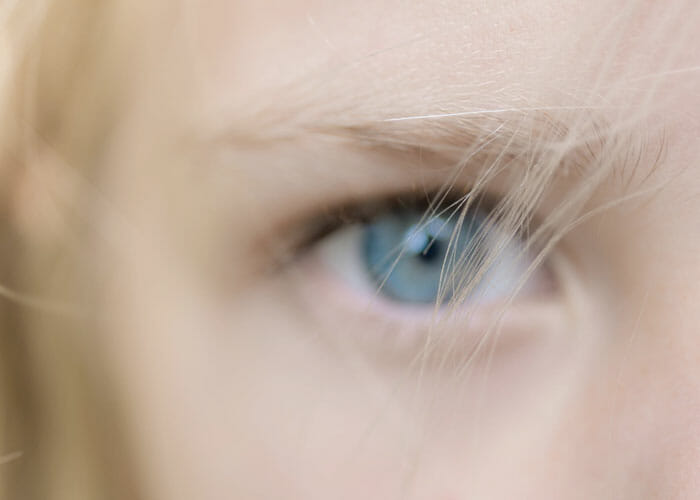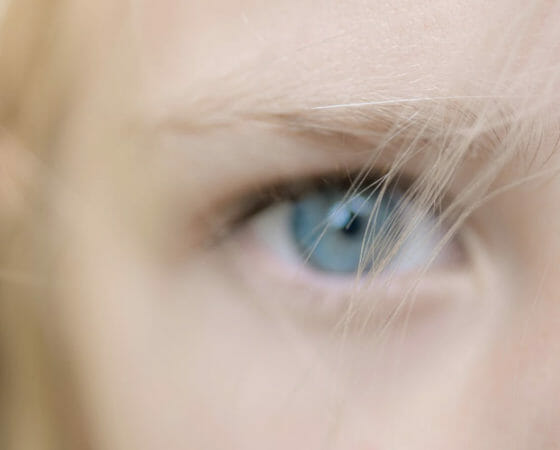AMD, or Age-Related Macular Degeneration Awareness Month Is Here

February is age-related macular degeneration awareness month, and it’s a good time to find out all you can about this common condition that can rob people of their sight as they age. Here are the important things you need to know regarding age-related macular degeneration.
What Causes AMD?
Age-related macular degeneration, or AMD, is a condition generally resulting from damage to the retina, causing vision loss in the center of the visual field, known as the macula. As you get older, especially after 50, macular degeneration becomes more likely.
It’s important to know that people with macular degeneration are not necessarily going totally blind; the peripheral field is not affected, and those with macular degeneration are able to use their peripheral vision to compensate. However, reading and facial recognition can be rendered extremely difficult or even impossible.
Types of Age-Related Macular Degeneration
There are two types of macular degeneration; wet macular degeneration and dry macular degeneration.
Wet Macular Degeneration
In wet macular degeneration, abnormal blood vessels grow underneath the macula in a process called choroidal neovascularization. The result is blood and fluid leaking into the retina, first creating wavy lines and blind spots, and finally forming a scar that leads to permanent central vision loss.
Dry Macular Degeneration
The dry form of macular degeneration is more common. In the dry form, yellow deposits known as drusen form in the macula. As these drusen increase, there is more dimming and distortion in the central visual field. While the wet form tends to lead to the most serious vision loss, the dry form (though far more common), can sometimes lead to wet macular degeneration.
Signs of Macular Degeneration
Signs of macular degeneration can include blurred vision, loss of central vision, dramatic drop in visual acuity, eye hemorrhages, shadows or blind spots, delayed recovery to light overexposure and straining to differentiate colors, especially with respect to contrast.
Treating Age-Related Macular Degeneration
Quitting smoking and improving your diet can help you delay or avoid many eye conditions, including macular degeneration. Because Dry AMD is less severe, there is usually no treatment, and patients simply need to learn to adjust to their affected vision.
However, a 2001 study called the Age-Related Eye Disease Study, or AREDS, found that a nutritional supplement formulation containing Vitamin C, Vitamin E, beta-carotene, zinc and copper can help to reduce the risk of advanced age-related macular degeneration.
If you are suffering from wet AMD, your eye doctor will probably prescribe medications called anti-VEGF drugs. These drugs can reduce those abnormal blood vessels in your retina and slow leaking. There are also laser treatments that your doctor may recommend for reducing these blood vessels.
Underscoring the Importance of Regular Eye Exams
Regardless of where you are with respect to age-related macular degeneration, it’s very important that you get regular eye exams, especially as you get older. The sooner your eye doctor detects a potential eye problem, the sooner you can start treatment, which will usually give you a better chance of preserving and prolonging your eyesight.
If you are in the Portland area and are ready for your eye exam, come see us at Beaumont Vision. We offer high-quality eye care in a welcoming, professional environment. We also have a great selection of classic and high-fashion eyewear to choose from. Call us at 503-331-3937 to schedule an appointment today.

